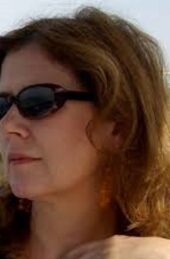Carly Schabowski, Kasia is the heroine of your novel. What sort of woman is she?
Kasia, whilst outwardly strong and brave, is like all of us in that she still feels fear, is still afraid of what might be and carries her own demons and secrets. I hope that I have made Kasia a relatable character, and perhaps even one who can inspire a reader.
Which books/historians did you find most helpful during your research?
I relied quite heavily on research obtained at The National Archives at Kew. These records of the SOE provided a lot of the historical base that was needed to put my characters into action. For this book in particular, I found Svetlana Alexievich’s Last Witnesses: An Oral History of the Children of World War II, Judy Batalion’s, The Light of Days: Women Fighters of the Jewish Resistance, and Leo Mark’s, Between Silk and Cyanide exceedingly useful. Other historians I continually find useful are Halki Kochanski with her works on Poland and Poles during WWII.
The experience of women in the war is increasingly a story being told – was there anything that you didn’t know about before but which surprised you when researching the novel?
There were many things that surprised me when researching for the novel – that of female led resistance groups in Poland, women who joined the SOE as radio operators and spies, and of course the research that highlighted the Polish contribution toward the breaking of German codes.
Your story moves from Poland to France – was it based on a real event or individual(s)?
The story was an amalgamation of many stories, including Polish women who came to the UK and joined the SOE, women who led resistance groups in Poland and France, and those who worked in academia who continued to hold clandestine meetings throughout the war.
When writing your historical fiction, do you build the plot around historical events, or have the plot in mind and then find the right historical setting?
I always base my writings on historical events, particularly those which I feel have not been explored before. It is then that I discover a plot within the events, taking into account real-life stories to create believable characters.
Do you feel a responsibility when writing about historical events, to ensure that readers are not misled about what actually happened in the places and times in which you write?
I feel a responsibility in relating history, of course, but not perhaps as a historian would. I want to portray a reality within the historical event, taking into account multiple perspectives and multiple lenses in which to view the past. Memory, trauma and familial storytelling are all important lenses in which to view history, and indeed, our most recent history, drawing on personal lives and a lived reality. Within my novels I hope to signpost to a reader how fraught relating ‘history’ actually is with its misrememberings, traumatic accounts and perhaps stories side-lined by shame.
Which authors have inspired you when writing your novels?
There are many authors that I find inspirational; some fiction, some non fiction. WG Sebald I admire greatly for his work Austerlitz, Primo Levi’s memoir and fiction have also given me a greater understanding of personal accounts during WWII, and historian Hayden White’s writings on history and historical fiction have proved incredibly helpful in determining how I approach writing historical fiction and what I want a reader to take away from my work.
What are you writing next?
I am currently finishing a novel about Fort VII in Poznan and the liquidation of Owinska Mental Hospital. This Fort was originally to be used as a POW camp, but as early as October 1939, had been established as a prison for the ‘unwanted’ Poles, including academics, politicians, and those with mental disorders. During October 1939, the staff and patients from Owinska Mental Hospital were taken to Fort VII, where the first experiments with gassing prisoners to death began. I feel it is a story that is little known about and is an important story to tell, highlighting the speed at which the Nazi killing machine became operational. The story also has a dual narrative, based on a true story of a Polish-German airman who defected out of the Luftwaffe and became a translator in Poland, helping to deceive the Gestapo and SS and aided in saving countless lives.
Carly Schabowski is the author of All the Courage We Have Found, published by Bookouture.







